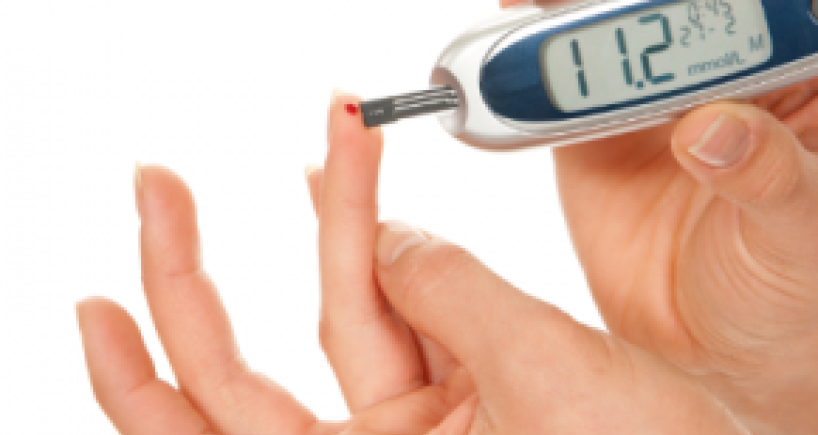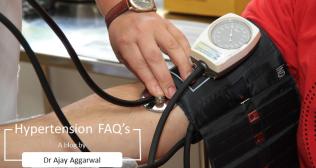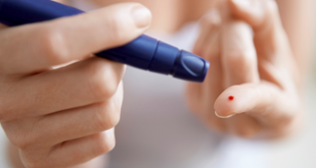
Diabetology/Endocrinology
Manage Your Diabetes
Manage Your Diabetes Feb 28, 2014

Type 2 diabetes is a chronic condition that affects the way your body metabolizes sugar (glucose), the main source of fuel for your body. With Type 2 diabetes, your body either resists the effects of insulin (a hormone that regulates the movement of sugar into cells) or doesn’t produce enough insulin to maintain normal glucose level. You need to consult your
doctor for diabetes, as untreated, Type 2 diabetes can be life-threatening. There’s no cure for Type 2 diabetes, but you can manage the condition by eating well, exercising and maintaining a healthy weight. If diet and exercise don’t help, you may need diabetes medication or insulin therapy.
SYMPTOMS
- Increased thirst and frequent urination
- Increased hunger
- Weight loss
- Fatigue
- Blurred vision
- Slow-healing sores or frequent infections
COMPLICATIONS
Type 2 diabetes can be easy to ignore, especially in the early stages when you're feeling fine. But diabetes affects many major organs, including your heart, blood vessels, nerves, eyes and kidneys. Controlling your blood sugar levels can help prevent these complications. Some of the potential complications of diabetes include:
Heart and blood vessel disease: Diabetes increases the risk of various cardiovascular problems and high blood pressure. The risk of stroke is two to four times higher for people with diabetes.
Nerve damage (neuropathy): Excess sugar can injure the walls of blood vessels that nourish your nerves, especially in the legs. This can cause tingling, numbness, burning or pain.
Kidney damage (nephropathy): Diabetes can damage the delicate filtering system of kidneys. Severe damage can lead to kidney failure or irreversible end-stage kidney disease.
Eye damage: Diabetes can damage blood vessels of retina, potentially leading to blindness. It also increases the risk of other serious vision conditions, such as cataracts and glaucoma.
Foot damage: Nerve damage in the feet or poor blood flow to the feet increases the risk of various foot complications. Left untreated, cuts and blisters can become serious infections.
Skin and mouth conditions: Diabetes may leave you more susceptible to skin problems, including bacterial and fungal infections. Gum infections also may be a concern, especially if you have a history of poor dental hygiene.
Osteoporosis: Diabetes may lead to lower than normal bone mineral density, increasing your risk of osteoporosis.
Alzheimer’s disease: Type 2 diabetes may increase the risk of Alzheimer’s disease and vascular dementia.
Hearing problems: Diabetes can also lead to hearing impairment.
TREATMENT AND PREVENTION
Treatment for Type 2 diabetes requires a lifelong commitment to:
- Regular blood sugar monitoring
- Healthy eating
- Diabetes medication or insulin therapy
HEALTHY EATING
Contrary to popular perception, there’s no diabetes diet. However, it’s important to centre your diet on high-fibre, low-fat foods. Eat fruits, vegetables and whole grains with a low-glycaemic index. Eat fewer animal products, refined carbohydrates and sweets.
PHYSICAL ACTIVITY
Get your doctor’s nod before you start an exercise programme. Aim for at least 30 minutes of aerobic exercise with stretching and strength training exercises. If you haven’t been active for a while, start slowly and build up gradually. Check your blood sugar level before any activity. You might need to eat a snack before exercising to help prevent low blood sugar.
MEDICATION & INSULIN THERAPY
Some people who have Type 2 diabetes can manage their blood sugar with diet and exercise alone, but many need diabetes medication or insulin therapy. Medication depends on many factors, including your blood sugar level and any other health problems you might have.

 Type 2 diabetes is a chronic condition that affects the way your body metabolizes sugar (glucose), the main source of fuel for your body. With Type 2 diabetes, your body either resists the effects of insulin (a hormone that regulates the movement of sugar into cells) or doesn’t produce enough insulin to maintain normal glucose level. You need to consult your doctor for diabetes, as untreated, Type 2 diabetes can be life-threatening. There’s no cure for Type 2 diabetes, but you can manage the condition by eating well, exercising and maintaining a healthy weight. If diet and exercise don’t help, you may need diabetes medication or insulin therapy.
SYMPTOMS
Type 2 diabetes is a chronic condition that affects the way your body metabolizes sugar (glucose), the main source of fuel for your body. With Type 2 diabetes, your body either resists the effects of insulin (a hormone that regulates the movement of sugar into cells) or doesn’t produce enough insulin to maintain normal glucose level. You need to consult your doctor for diabetes, as untreated, Type 2 diabetes can be life-threatening. There’s no cure for Type 2 diabetes, but you can manage the condition by eating well, exercising and maintaining a healthy weight. If diet and exercise don’t help, you may need diabetes medication or insulin therapy.
SYMPTOMS


















